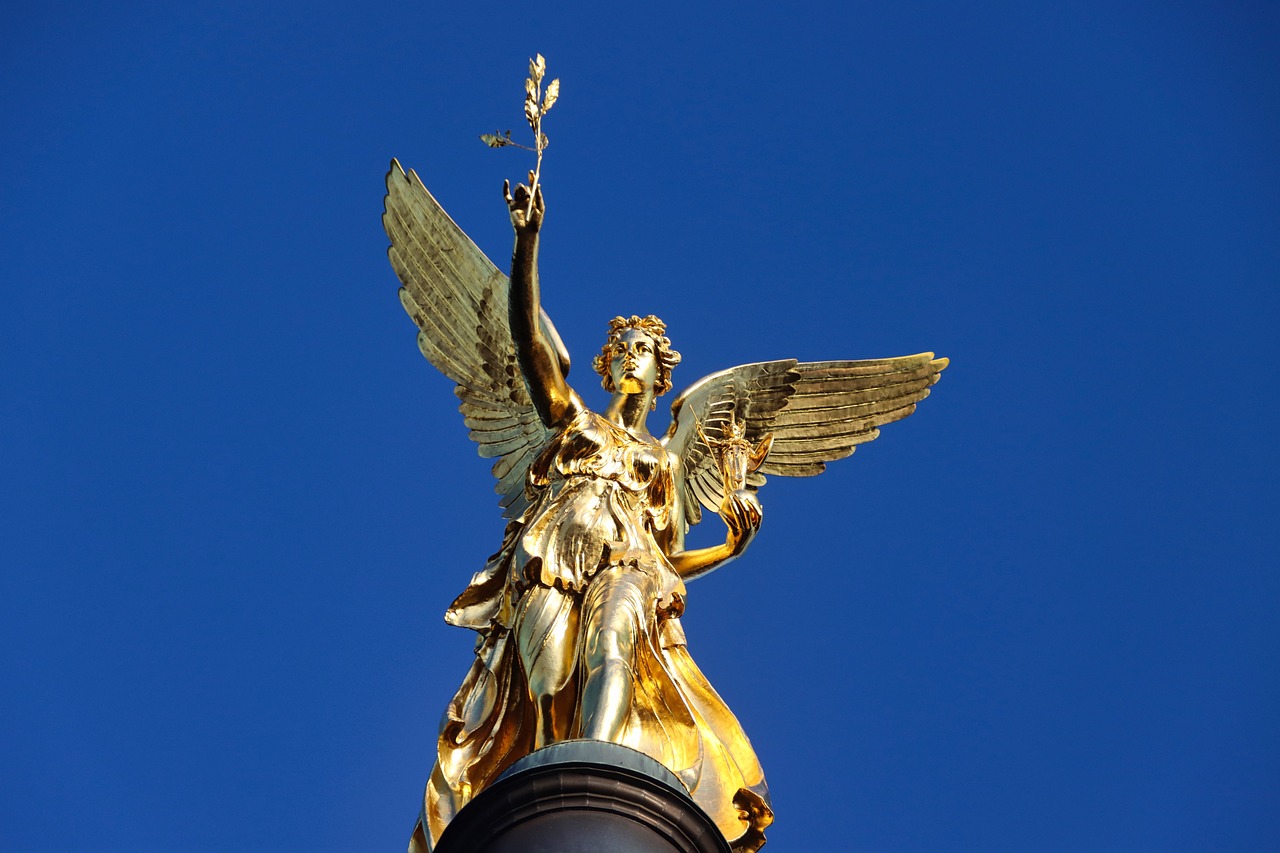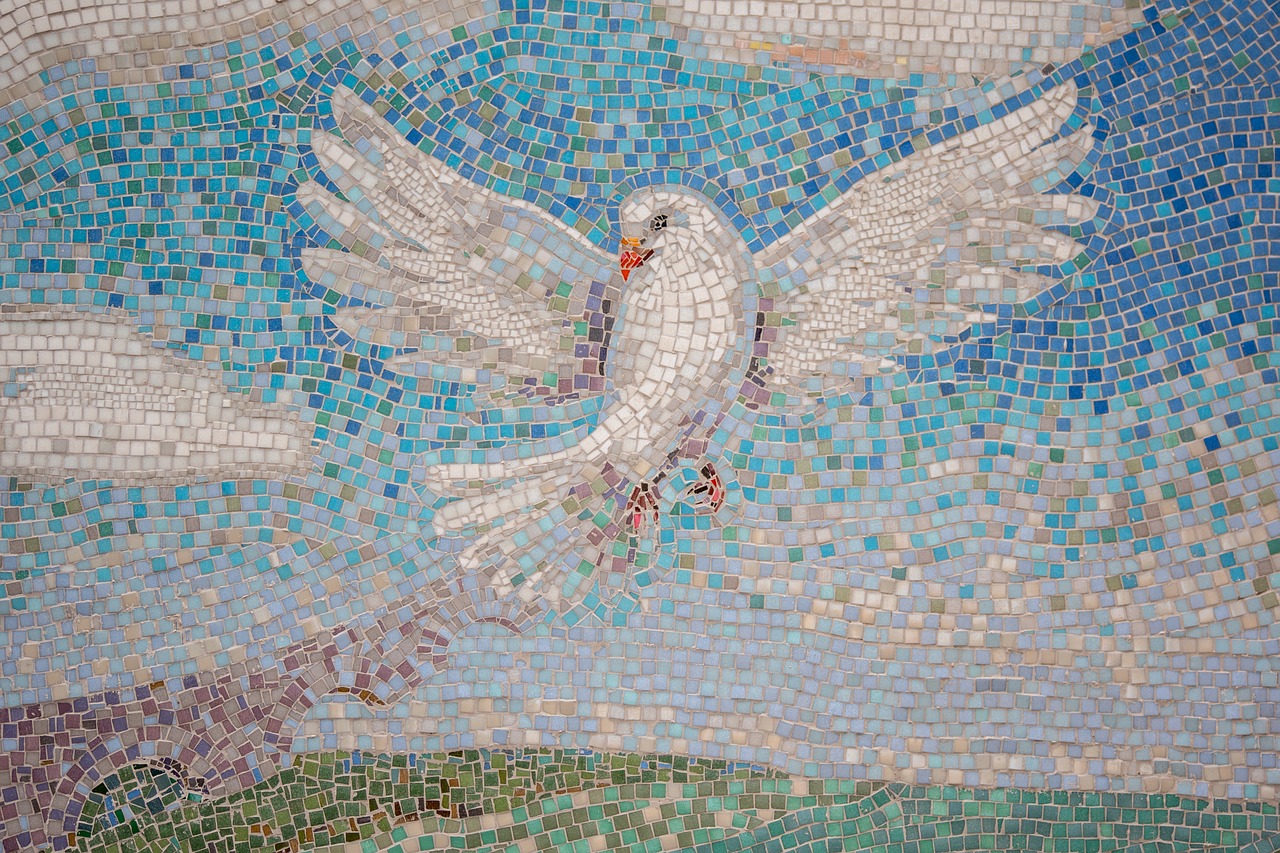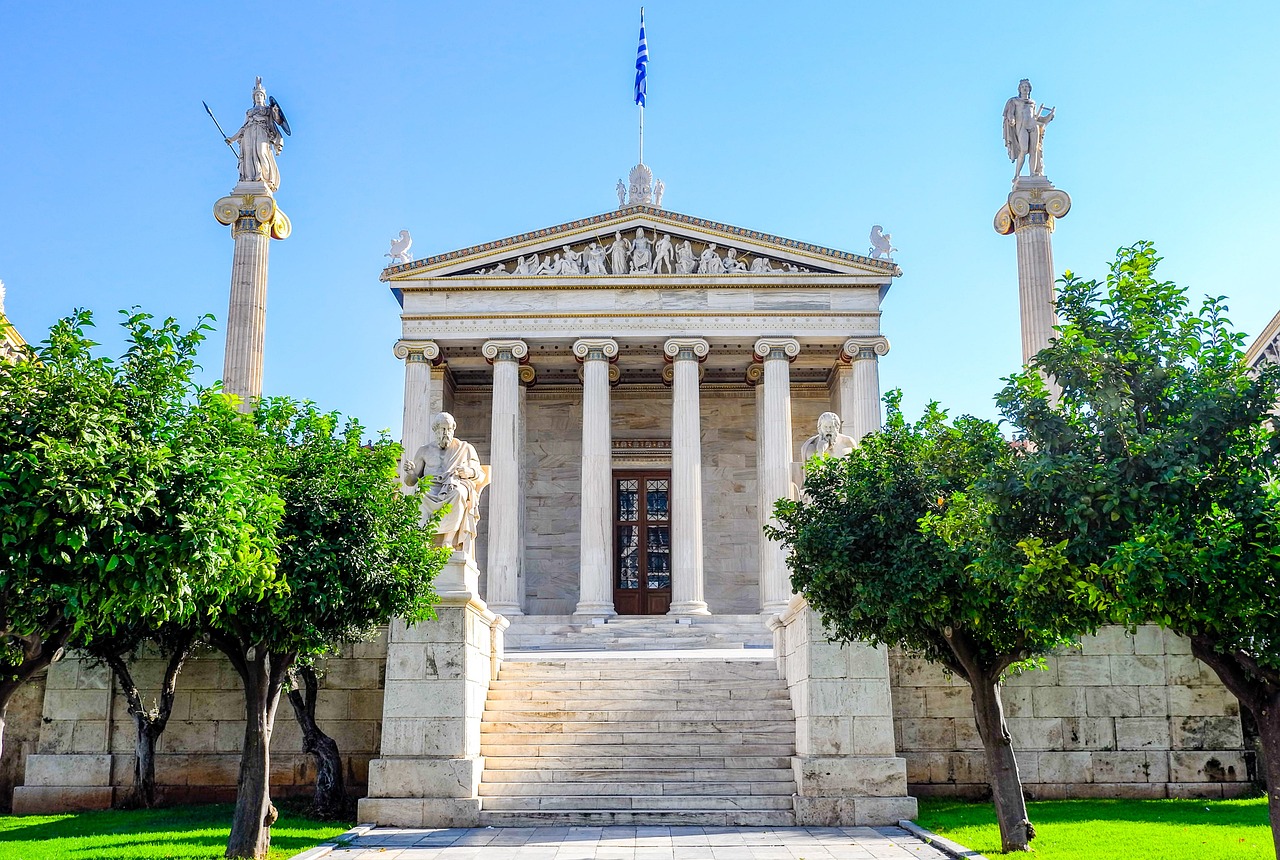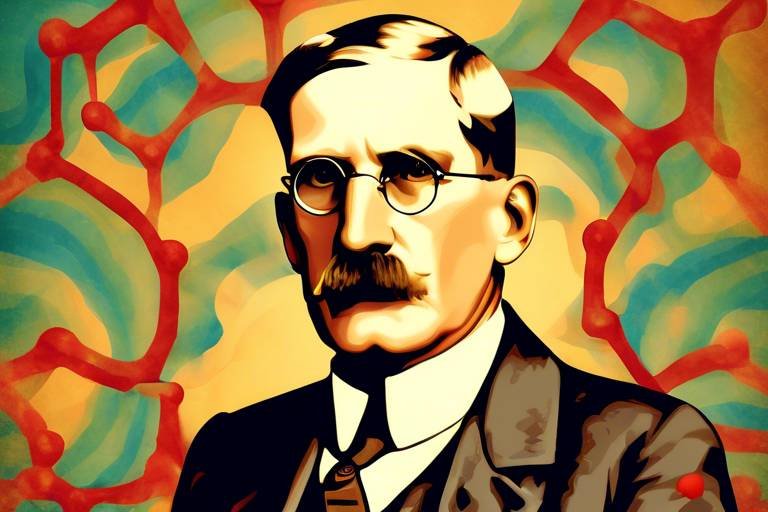Kant on Perpetual Peace - A Modern Analysis
In a world that often feels like it's teetering on the edge of chaos, the idea of perpetual peace proposed by Immanuel Kant resonates more than ever. Imagine a globe where nations coexist in harmony, resolving conflicts through dialogue rather than warfare. Sounds like a dream, right? Yet, Kant's vision is not merely a fantastical utopia; it is a profound philosophical framework that encourages us to rethink our approaches to international relations and conflict resolution. This article explores Kant’s ideas, their historical context, and their relevance in today’s geopolitical landscape, ultimately asking: can we truly achieve lasting peace among nations?
To fully grasp Kant's revolutionary thoughts on peace, it's essential to understand the historical backdrop of the late 18th century. Europe was a patchwork of warring states, with the aftermath of the Thirty Years' War still fresh in collective memory. Kant lived during a time when the Enlightenment was challenging traditional notions of authority and governance. This intellectual movement emphasized reason, individualism, and the pursuit of knowledge, setting the stage for Kant's bold propositions. He argued that peace was not just the absence of war but a state that could be achieved through rational discourse and ethical governance. This perspective was radical for its time and laid the groundwork for modern peacebuilding efforts.
Kant articulated several fundamental principles that he believed were necessary for achieving lasting peace among nations. At the core of his philosophy is the idea that countries must embrace cooperation, engage in diplomacy, and adhere to the rule of law. He famously outlined these principles in his essay "Perpetual Peace: A Philosophical Sketch," where he proposed that a federation of free states would be essential for maintaining global harmony. Kant envisioned a world where nations would come together, not as conquerors, but as partners committed to mutual respect and understanding.
Central to Kant's vision is the notion that justice is indispensable for establishing peace. Without justice, peace is merely a fragile illusion. Kant believed that a just society would inherently promote peace, as people would be more inclined to cooperate when they feel their rights are protected. This principle extends to international relations, where nations must uphold justice to foster trust and collaboration. In a world rife with inequality and injustice, Kant’s ideas challenge us to reflect on how we can create a more equitable global order.
Kant emphasized the importance of legal structures in maintaining peace. He argued that treaties and international law are vital for regulating the behavior of states and preventing conflicts. Today, organizations like the United Nations embody this principle, providing a platform for nations to negotiate and resolve disputes peacefully. However, the effectiveness of these legal frameworks often hinges on the willingness of states to adhere to them. In this context, Kant's insistence on the rule of law serves as a reminder that legal agreements must be respected to achieve lasting peace.
Moreover, Kant's ethical framework plays a crucial role in guiding nations toward peace. He believed in the concept of the categorical imperative, which posits that actions should be judged based on whether they could be universally applied. This moral philosophy encourages nations to act in ways that promote not only their interests but also the well-being of others. By adopting ethical considerations in peacebuilding, countries can foster a more compassionate and cooperative international community.
Kant's ideas were profoundly influenced by Enlightenment principles, which championed reason and human rights. This philosophical foundation continues to shape contemporary peace initiatives and international relations. For instance, the emphasis on democracy and human rights in modern governance can be traced back to Enlightenment thinkers like Kant. His vision of perpetual peace inspires many current movements advocating for global governance, highlighting the enduring relevance of his thoughts in a world still grappling with conflict.
Kant's vision of perpetual peace has had a lasting impact on various modern peace theories and movements aimed at conflict resolution. His ideas serve as a counterpoint to more cynical approaches, such as realism, which often prioritize state power over ethical considerations. Kantian principles encourage a more optimistic view of international relations, suggesting that peace is not only possible but achievable through collective effort and moral commitment.
The ongoing debate between realism and idealism in international relations often reflects Kant's contrasting views. While realists argue that nations are inherently self-interested and driven by power dynamics, idealists, inspired by Kant, believe in the potential for cooperation and mutual benefit. This ideological clash continues to shape policy decisions and diplomatic strategies worldwide, raising critical questions about the nature of peace and the means by which it can be attained.
Examining specific instances where Kant's principles have been applied reveals the practical implications of his philosophy. For example, the establishment of the European Union can be seen as a modern embodiment of Kant's vision, as member states have chosen to cooperate economically and politically to avoid conflict. Similarly, peace treaties that emphasize reconciliation and justice reflect Kantian ideals in action, demonstrating that his thoughts are not just theoretical but can lead to tangible outcomes.
- What is Kant's idea of perpetual peace? Kant's idea of perpetual peace refers to a state of lasting peace that can be achieved through cooperation, justice, and adherence to international law.
- How does Kant's philosophy influence modern international relations? Kant's philosophy encourages nations to prioritize ethical considerations and cooperation, contrasting with more cynical realist approaches.
- Can Kant's principles be applied in today's world? Yes, many contemporary peace initiatives and organizations, such as the United Nations, embody Kantian principles, promoting dialogue and mutual respect among nations.

The Historical Context of Kant's Philosophy
This article explores Immanuel Kant's philosophical ideas on perpetual peace, examining their relevance and application in contemporary international relations and conflict resolution.
To truly grasp the depth of Immanuel Kant's ideas on perpetual peace, it is essential to understand the historical backdrop against which he wrote. Born in 1724 in Königsberg, Prussia, Kant lived through a tumultuous period marked by the Enlightenment, a time when reason and individualism were championed over tradition and dogma. The Enlightenment was a catalyst for change, pushing the boundaries of thought and questioning the established norms of society, politics, and morality.
Kant's philosophy emerged amidst the backdrop of the Thirty Years’ War, which had devastating impacts on Europe, leading to widespread destruction and loss of life. This conflict highlighted the need for a new approach to international relations, one that prioritized peace and cooperation over warfare and territorial disputes. Kant was not merely a philosopher; he was a visionary who sought to address the chaos of his time by proposing a framework for lasting peace.
His seminal work, Perpetual Peace: A Philosophical Sketch, published in 1795, was a bold assertion that peace could be achieved through rational discourse and the establishment of a federation of free states. He argued that the principles of democracy, international law, and human rights were vital in preventing future conflicts. Kant believed that the enlightenment ideals of reason and moral duty could guide nations toward a more harmonious existence.
Furthermore, Kant's philosophy was heavily influenced by the political landscape of his time, particularly the rise of nation-states and the shift towards more democratic forms of governance. This period saw the emergence of ideas about sovereignty and the rights of individuals, which Kant integrated into his vision for a peaceful world. He posited that for peace to be sustainable, it must be rooted in a legal framework that respects the autonomy of each state while promoting collective security.
In this context, Kant's emphasis on the importance of justice cannot be overstated. He believed that without justice, any peace achieved would be temporary and fragile. His thoughts on justice were revolutionary, as they proposed that a moral foundation was essential for international relations. This notion resonates strongly in today's world, where conflicts often arise from perceived injustices and inequities.
To further illustrate the historical context of Kant's philosophy, consider the following table that outlines key events and ideas that shaped his thinking:
| Year | Event/Idea | Significance |
|---|---|---|
| 1618-1648 | Thirty Years' War | Highlighted the need for peace and cooperation among nations. |
| 1689 | Glorious Revolution | Established principles of constitutional monarchy and rights of individuals. |
| 1750s | Rise of Enlightenment | Promoted reason, science, and individual rights over tradition. |
| 1795 | Publication of Perpetual Peace | Proposed a framework for achieving lasting peace among nations. |
In summary, the historical context of Kant's philosophy is a rich tapestry woven with the threads of conflict, enlightenment, and the quest for justice. His ideas were not developed in a vacuum; they were a response to the world around him, a world that desperately needed a new vision for peace. As we delve deeper into Kant's principles of perpetual peace, it becomes clear that his insights are not just relics of the past but are profoundly relevant to our contemporary challenges in international relations and conflict resolution.
- What is Kant's main argument in Perpetual Peace?
Kant argues that lasting peace can be achieved through a federation of free states that adhere to principles of democracy, justice, and international law. - How does Kant's philosophy relate to modern international relations?
Kant's ideas about cooperation, diplomacy, and the rule of law continue to influence contemporary peacebuilding efforts and international governance. - What role does justice play in Kant's vision of peace?
Kant believed that justice is essential for establishing peace, as it addresses the moral imperatives that guide nations in their interactions with one another.

Kant's Principles of Perpetual Peace
Immanuel Kant, a luminary of Enlightenment thought, proposed a visionary framework for achieving lasting peace among nations in his seminal essay, "Perpetual Peace." His ideas resonate profoundly even today, as they encourage a shift from conflict to cooperation on the global stage. At the heart of Kant's philosophy are several key principles that advocate for a world where diplomacy and mutual respect prevail over war and hostility. These principles serve as a guiding light for contemporary efforts in international relations, urging nations to embrace a collaborative spirit.
Kant's first principle emphasizes the necessity of establishing a federation of free states. He envisioned a world where sovereign nations come together, not as conquerors, but as equal partners committed to resolving disputes through dialogue rather than warfare. This federation, akin to a modern-day United Nations, would operate on the foundation of respect for each nation's autonomy while fostering a sense of global community. The essence of this principle lies in the belief that peace cannot be achieved in isolation; rather, it flourishes in a network of cooperative relationships.
Another critical tenet of Kant's vision is the importance of democratic governance. He argued that republics, characterized by representative government and the rule of law, are less likely to engage in wars with one another. The rationale behind this is straightforward: when citizens have a say in their government, they are less inclined to support wars that could lead to their own suffering. In this light, Kant's advocacy for democracy is not merely a political preference; it is a strategic approach to fostering peace. He believed that if more nations adopted democratic principles, the likelihood of conflict would diminish significantly.
Furthermore, Kant highlighted the role of international law as a cornerstone of his peace framework. He contended that legal agreements and treaties are essential for regulating interactions between states. These legal structures provide a mechanism for accountability and conflict resolution, ensuring that nations adhere to agreed-upon norms and standards. In today's world, where international law governs everything from trade to human rights, Kant's insights remain incredibly relevant. They remind us that a robust legal framework is indispensable for maintaining peace and security across borders.
In addition to these principles, Kant also underscored the significance of ethical considerations in peacebuilding. He believed that moral imperatives should guide nations in their interactions, promoting a sense of responsibility towards one another. This ethical dimension calls for nations to prioritize humanitarian concerns and the well-being of others over self-interest. In essence, Kant's philosophy advocates for a world where nations not only pursue their own interests but also consider the impact of their actions on global harmony.
To encapsulate Kant's principles, we can summarize them in the following table:
| Principle | Description |
|---|---|
| Federation of Free States | A collaborative network of sovereign nations working together to resolve conflicts. |
| Democratic Governance | Encouraging republicanism to reduce the likelihood of war between nations. |
| International Law | Establishing legal frameworks to regulate state interactions and ensure accountability. |
| Ethical Considerations | Guiding nations to act with a sense of moral responsibility towards global peace. |
In conclusion, Kant's principles of perpetual peace offer a profound roadmap for contemporary international relations. By advocating for a federation of states, promoting democratic governance, establishing robust legal frameworks, and emphasizing ethical considerations, Kant provides a comprehensive approach to achieving lasting peace. As we navigate the complexities of modern geopolitics, his insights serve as a valuable reminder that peace is not merely the absence of conflict, but a dynamic process that requires ongoing commitment, collaboration, and moral integrity.

When we think about the concept of peace, it often feels like a distant dream, doesn’t it? Immanuel Kant believed that the foundation of this dream lies in justice. He argued that without justice, true peace is merely an illusion. Imagine a world where nations coexist in harmony, but the scales of justice are tipped in favor of the powerful; that world is bound to crumble. Kant’s philosophy emphasizes that justice is not just a legal construct but a moral imperative that shapes the very fabric of international relations.
Kant posited that peace cannot be achieved through mere treaties or temporary alliances. Instead, it requires a commitment to justice that transcends borders. This means that nations must not only respect each other’s sovereignty but also adhere to principles of fairness and equity. In practice, this translates to holding nations accountable for their actions, ensuring that violations of human rights do not go unpunished, and fostering an environment where dialogue and understanding are prioritized over conflict.
To illustrate this point, consider the following key aspects of justice in relation to peace:
- Accountability: Nations must be held accountable for their actions. When a country commits an act of aggression, it should face consequences, not just in terms of military retaliation but through diplomatic channels and international law.
- Fairness: Justice demands that all nations, regardless of their power or influence, are treated equally. This principle helps to build trust and cooperation between countries, reducing the likelihood of conflict.
- Human Rights: A commitment to human rights is essential for justice. When individuals are treated with dignity and respect, it fosters a culture of peace that can extend beyond borders.
In the modern context, the role of justice in peace can be seen in various international organizations and treaties aimed at conflict resolution. For instance, the United Nations operates on the premise that justice is vital for maintaining peace. Through its various bodies, the UN seeks to mediate disputes, provide humanitarian aid, and promote human rights, all of which are essential components of a just society. However, the effectiveness of these initiatives often hinges on the willingness of nations to adhere to the principles of justice.
Moreover, Kant’s vision of justice extends into the realm of ethical considerations. He believed that ethical imperatives guide nations toward cooperation rather than competition. By prioritizing justice, countries can create a more stable and peaceful world. This ethical framework encourages leaders to think beyond their national interests and consider the global implications of their actions. In this way, justice becomes a powerful tool for peacebuilding, fostering an environment where dialogue and mutual respect can flourish.
In conclusion, the role of justice in achieving peace is not just an abstract concept; it is a practical necessity. Kant’s insights remind us that for peace to be lasting, it must be built on a foundation of justice that is both fair and inclusive. As we navigate the complexities of modern international relations, embracing this principle can lead us closer to a world where peace is not just a dream, but a reality.
- What is the main idea behind Kant's philosophy of perpetual peace? Kant believed that lasting peace can only be achieved through justice, cooperation, and adherence to international law.
- How does justice influence international relations? Justice ensures that nations are held accountable for their actions, promotes fairness, and fosters respect for human rights, all of which contribute to global peace.
- Can Kant's principles be applied in today's geopolitical landscape? Yes, many international organizations and treaties are based on Kantian principles, emphasizing the importance of justice and ethical considerations in conflict resolution.

Legal Frameworks for Peace
When we think about peace, it’s easy to imagine a world where nations coexist harmoniously, but the road to achieving this ideal is paved with complex legal frameworks. Kant believed that a robust legal structure was essential for maintaining peace among nations. He envisioned a world governed by laws that not only regulate behavior but also foster cooperation and understanding. In today’s geopolitical landscape, these legal frameworks manifest in various forms, including treaties, international agreements, and organizations dedicated to conflict resolution.
At the heart of Kant’s philosophy is the notion that peace is not merely the absence of war but a proactive state of cooperation. To realize this, he proposed a set of principles that would guide nations in their interactions. One of these principles is the establishment of a federation of free states, which would create a platform for dialogue and negotiation. This is reminiscent of the modern-day United Nations, which serves as a forum for countries to discuss their differences and seek peaceful resolutions.
Moreover, Kant highlighted the importance of international law as a tool for peace. He argued that laws should be universally applicable, ensuring that all nations are held accountable for their actions. This universality is crucial, as it establishes a common ground for nations to operate on. For instance, international treaties like the Geneva Conventions set standards for humanitarian treatment during conflicts, aiming to protect those who are most vulnerable. These legal frameworks not only provide guidelines for behavior but also serve as a deterrent against potential aggressors.
To illustrate the significance of these legal frameworks, let’s consider some key components that contribute to a peaceful international order:
| Component | Description |
|---|---|
| Treaties | Formal agreements between countries that outline mutual obligations and rights. |
| International Law | Rules and principles that govern the relations between nations and other international actors. |
| Dispute Resolution Mechanisms | Processes like arbitration and mediation to resolve conflicts peacefully. |
| Human Rights Frameworks | Legal standards that protect individuals from abuses and promote dignity. |
These components work together to create a legal environment where peace can flourish. However, it’s important to remember that laws alone cannot ensure peace; they must be supported by a genuine commitment from nations to uphold these principles. This brings us to the ethical considerations that Kant emphasized. Without a moral imperative to act justly, legal frameworks risk becoming mere formalities, lacking the substance needed to foster true peace.
In conclusion, Kant’s vision of legal frameworks for peace is as relevant today as it was in his time. As we navigate the complexities of international relations, it’s crucial to recognize the role that laws play in shaping our world. They are not just abstract concepts; they are the foundations upon which we can build a more peaceful future. By embracing these legal frameworks and committing to ethical governance, nations can work together to create a world where peace is not just an aspiration but a reality.

Ethical Considerations in Peacebuilding
When we think about peacebuilding, it’s easy to get lost in the logistics and strategies. However, at the heart of successful peace efforts lies a rich tapestry of ethical considerations. Immanuel Kant emphasized that moral imperatives are not just abstract notions; they are the very foundation upon which lasting peace can be built. So, what does this mean in practical terms?
Kant’s ethical framework posits that actions should be guided by principles that can be universally applied. This idea resonates deeply in the realm of international relations, where the importance of mutual respect and understanding cannot be overstated. For instance, countries must engage with one another not merely out of self-interest but from a standpoint of ethical responsibility. This means recognizing the humanity in others, even those we might consider adversaries.
Furthermore, Kant believed that peace cannot be achieved through coercion or domination. Instead, it requires a commitment to justice and fairness. This raises the question: how can nations ensure that their peacebuilding efforts are grounded in ethical practices? Here are a few key considerations:
- Commitment to Dialogue: Open communication channels foster understanding and reduce the likelihood of conflict.
- Respect for Sovereignty: Ethical peacebuilding acknowledges the rights of nations to self-determination.
- Promotion of Human Rights: Ensuring that all individuals are treated with dignity is essential for sustainable peace.
These principles highlight that ethical considerations are not just an afterthought; they are integral to the planning and implementation of peace initiatives. For example, when nations engage in conflict resolution, they must consider the long-term implications of their actions. Are they creating a framework for sustainable peace, or are they simply addressing symptoms of deeper issues? This is where Kant's philosophy shines, as it encourages a holistic view of peace that transcends mere political agreements.
Moreover, the ethical dimension of peacebuilding also involves recognizing and addressing historical injustices. Acknowledging past wrongs is crucial for moving forward. This can be seen in various peace treaties, where reparations and apologies play a significant role in healing relationships between nations. By integrating ethical considerations into these processes, we create a more robust foundation for future cooperation.
In conclusion, the ethical considerations in peacebuilding are essential for creating a world where peace is not just the absence of conflict but a state of mutual respect and understanding. Kant's vision encourages us to adopt a more principled approach to international relations, reminding us that our actions should be guided by a commitment to justice, dialogue, and the inherent dignity of every individual. As we navigate the complexities of modern geopolitics, let us not forget that the ethical path is often the most challenging, yet it is the one that leads to true and lasting peace.
- What are Kant's main ideas on peacebuilding?
Kant emphasized the importance of ethical principles, justice, and dialogue in achieving lasting peace among nations. - How do ethical considerations impact international relations?
Ethical considerations guide nations to act responsibly, fostering mutual respect and understanding, which are vital for sustainable peace. - Can peace be achieved without addressing historical injustices?
Addressing historical injustices is crucial for building trust and ensuring that peace is genuine and lasting.

The Impact of Enlightenment Thought
The Enlightenment era was a time of intellectual awakening that profoundly influenced many aspects of society, including politics, science, and philosophy. Immanuel Kant, one of the leading figures of this movement, harnessed the spirit of the Enlightenment to craft his vision of perpetual peace. But what does this mean for us today? Well, Kant believed that reason, autonomy, and moral duty could pave the way for a more peaceful world. His ideas were not just abstract theories; they were grounded in the belief that humanity could achieve a higher state of existence through rational thought and ethical governance.
Kant's philosophy was deeply rooted in the Enlightenment's emphasis on human reason and the potential for progress. He argued that if individuals could exercise their rational faculties, they would inevitably seek peace and cooperation rather than conflict. This perspective was revolutionary at a time when monarchies and authoritarian regimes dominated the political landscape. Kant envisioned a world where nations would engage in dialogue and diplomacy, rather than resorting to war. This was a radical departure from the norms of his time, and it laid the groundwork for modern international relations.
Moreover, Kant's ideas were influenced by the Enlightenment's belief in universal human rights. He posited that all individuals possess inherent dignity and deserve to live in a society governed by justice and fairness. This notion resonates with contemporary discussions about human rights and humanitarian interventions. For example, the principles of the United Nations are heavily influenced by Kantian thought, aiming to promote peace and protect human rights globally. By understanding Kant's emphasis on ethical governance, we can better appreciate how his ideas continue to shape our world today.
In addition, the Enlightenment fostered a sense of global interconnectedness. Kant argued that peace could only be achieved through a federation of free states, where nations cooperate based on mutual respect and shared values. This idea is strikingly relevant in our current globalized world, where issues like climate change, terrorism, and economic inequality transcend national borders. The need for international cooperation and collective action is more pressing than ever, making Kant's vision of a peaceful federation of states not just an ideal but a necessity.
To illustrate the lasting impact of Enlightenment thought on peacebuilding, consider the following table, which outlines key Enlightenment principles and their relevance to modern peace initiatives:
| Enlightenment Principle | Modern Application |
|---|---|
| Reason | Promotes dialogue and conflict resolution through rational discourse. |
| Human Rights | Foundation for international laws and humanitarian interventions. |
| Global Interconnectedness | Encourages multinational cooperation on global issues. |
| Ethical Governance | Inspires democratic institutions and accountable leadership. |
In summary, the Enlightenment thought that permeated Kant's philosophy remains a vital part of our discourse on peace today. It inspires us to reflect on our responsibilities as global citizens and encourages nations to strive for a more just and peaceful world. Kant's belief in the power of reason and ethical governance offers a roadmap for addressing the complex challenges we face in the contemporary landscape. So, the next time you ponder the state of international relations, consider how far we've come since Kant's time—and how far we still have to go.
- What is the main idea of Kant's perpetual peace? Kant's perpetual peace concept emphasizes the necessity of cooperation, diplomacy, and the establishment of a legal framework among nations to achieve lasting peace.
- How did Enlightenment thought influence Kant? Enlightenment thought influenced Kant by promoting the use of reason, the belief in universal human rights, and the idea of global interconnectedness, which are central to his philosophy.
- Why is Kant's philosophy relevant today? Kant's philosophy is relevant today as it provides a framework for understanding international relations, human rights, and the importance of ethical governance in achieving global peace.

Kant's Influence on Modern Peace Theories
Immanuel Kant's vision of perpetual peace has left an indelible mark on modern peace theories, shaping how we understand conflict resolution and international relations today. His ideas resonate deeply in various frameworks that seek to promote harmony among nations. But how exactly did Kant's thoughts transition from the 18th century to contemporary discourse? The essence of his philosophy lies in the belief that peace is not merely the absence of war but a state that requires active engagement and cooperation among states.
Kant's principles have inspired a plethora of modern movements aimed at fostering global governance and collaborative peace efforts. His assertion that democratic nations are less likely to go to war with one another has become a cornerstone of liberal peace theory. This theory posits that the spread of democracy, economic interdependence, and international institutions can lead to a more peaceful world. In fact, many scholars argue that Kant's ideas provide a philosophical backbone to organizations like the United Nations, which strives to mediate conflicts and promote collective security.
Moreover, Kant's emphasis on the rule of law and justice in international relations has paved the way for the development of international legal frameworks. Today, treaties and agreements, such as the Paris Agreement on climate change, reflect Kantian ideals by highlighting the importance of cooperation and mutual responsibility among nations. These legal structures not only facilitate diplomacy but also embody Kant's vision of a just world order where states act in accordance with shared moral principles.
To illustrate Kant's influence, consider the following table that highlights key modern peace theories and their connections to Kant's philosophy:
| Modern Peace Theory | Kantian Principle | Connection |
|---|---|---|
| Liberal Peace Theory | Democratic Peace Theory | Democracies are less likely to engage in conflict with one another. |
| Constructivism | Social Cooperation | Emphasizes the role of shared norms and values in achieving peace. |
| Realism | Balance of Power | While contrasting with Kant, it acknowledges the necessity of cooperation among states. |
| Human Security | Universal Rights | Focuses on the well-being of individuals, aligning with Kant's moral imperatives. |
In addition, Kant's ethical framework has influenced peacebuilding initiatives that prioritize moral imperatives over mere strategic interests. This shift towards ethical considerations in diplomacy encourages nations to act not just in self-interest but in the interest of global welfare. For instance, humanitarian interventions often invoke Kantian ethics, arguing that it is a moral duty to protect vulnerable populations, even if it means violating state sovereignty.
However, it's essential to acknowledge the ongoing debate surrounding Kant's influence. While his ideas have inspired many, they have also faced criticism, particularly from realist perspectives. Realists argue that states are inherently self-interested and that idealistic notions of cooperation often fall short in the face of power dynamics. Yet, the dialogue between realism and idealism continues to shape our understanding of peace and conflict, demonstrating that Kant's influence remains a vital part of the conversation.
In conclusion, Kant's ideas on perpetual peace serve as a beacon for modern peace theories. His emphasis on justice, cooperation, and the moral responsibilities of states continues to inform contemporary efforts in conflict resolution and international relations. As we navigate the complexities of today's geopolitical landscape, Kant's vision challenges us to aspire for a world where peace is not just an ideal, but a practical reality grounded in shared values and ethical commitments.
- What is the main idea behind Kant's perpetual peace? Kant believed that lasting peace could be achieved through cooperation, democracy, and the establishment of international laws.
- How does Kant's philosophy influence modern international relations? His ideas inspire various peace theories, emphasizing the importance of justice, cooperation, and moral imperatives in global governance.
- Are there criticisms of Kant's theories? Yes, particularly from realist perspectives that argue states act primarily in their self-interest, challenging the feasibility of Kant's idealism.

Realism vs. Idealism in International Relations
When diving into the intricate world of international relations, one cannot help but encounter the age-old debate between realism and idealism. These two schools of thought represent fundamentally different approaches to understanding how nations interact, pursue their interests, and ultimately achieve peace. At the heart of this discourse lies Immanuel Kant's vision of perpetual peace, which offers a refreshing perspective that contrasts sharply with the often cynical view of realists.
Realism, often characterized by its pragmatic approach, emphasizes the anarchic nature of the international system. Realists believe that nations are primarily motivated by self-interest and the pursuit of power. They argue that moral considerations are secondary to the harsh realities of survival in a competitive world. This perspective is akin to a chess game, where each player is solely focused on winning, often at the expense of cooperation or ethical considerations. In this view, peace is merely a temporary pause in hostilities, and the balance of power is the primary means of maintaining stability.
On the flip side, idealism posits that cooperation, mutual understanding, and ethical considerations can lead to a more harmonious international environment. Kant, as a prominent idealist, argued that lasting peace could be achieved through the establishment of democratic governance, adherence to international law, and the promotion of human rights. This perspective is reminiscent of a garden where diverse plants can flourish together, provided they are nurtured with care and respect. Idealists believe that nations can transcend their selfish interests through diplomacy and the cultivation of shared values.
To illustrate the contrasts between these two paradigms, consider the following table:
| Aspect | Realism | Idealism |
|---|---|---|
| Nature of International System | Anarchic and competitive | Cooperative and interdependent |
| Motivation of States | Self-interest and power | Ethical considerations and cooperation |
| View on Peace | Temporary and fragile | Achievable through cooperation |
| Role of International Law | Limited significance | Essential for lasting peace |
The tension between realism and idealism is not merely academic; it has profound implications for how nations approach conflict resolution and peacebuilding. For instance, during the Cold War, the realist perspective dominated U.S. foreign policy, emphasizing military strength and deterrence. In contrast, the post-Cold War era saw a resurgence of idealist thinking, with an increased focus on diplomacy, international institutions, and human rights advocacy.
However, the question remains: can these two perspectives coexist? Some scholars argue for a more integrative approach, suggesting that a blend of realism and idealism might be necessary to navigate the complexities of modern international relations. This hybrid model acknowledges the need for power and security while also recognizing the importance of ethical considerations and cooperative frameworks.
In conclusion, the debate between realism and idealism is not just a theoretical exercise; it shapes the strategies that nations employ in their quest for peace. Kant's vision of perpetual peace offers a hopeful counterpoint to the often bleak outlook of realism, reminding us that while power dynamics are crucial, the pursuit of justice, cooperation, and ethical governance is equally vital for fostering a sustainable and peaceful international order.

Case Studies of Kantian Peacebuilding
When we think about peacebuilding through the lens of Immanuel Kant's philosophy, it's fascinating to see how his ideas have been put into practice across different historical contexts. Kant envisioned a world where nations could coexist peacefully, guided by principles of cooperation and mutual respect. To illustrate this, let's explore a few notable case studies that embody his vision of perpetual peace.
One striking example is the establishment of the European Union (EU). Born out of the ashes of World War II, the EU was fundamentally aimed at fostering economic cooperation to prevent future conflicts between European nations. Kant's idea of perpetual peace finds resonance here, as the EU promotes diplomacy, legal frameworks, and shared governance among its member states. By creating a system where countries are interdependent, the EU exemplifies Kant's belief that peace can be achieved not just through treaties, but through a community of nations that share common interests and values.
Another compelling case is the United Nations (UN), which was founded with the intent of promoting international cooperation and preventing conflicts. Kant's emphasis on the rule of law is reflected in the UN's mission to uphold international law and human rights. The organization serves as a platform for dialogue, negotiation, and conflict resolution, embodying the idea that nations can resolve their differences through peaceful means rather than war. The UN's peacekeeping missions, which aim to stabilize regions in conflict, are practical applications of Kantian principles, demonstrating the importance of justice and ethical considerations in international relations.
Furthermore, we can look at the Camp David Accords of 1978, where the United States facilitated a peace agreement between Egypt and Israel. This diplomatic breakthrough was rooted in mutual recognition and respect, key tenets of Kant's philosophy. The accords not only ended years of conflict but also set a precedent for future negotiations in the Middle East. Here, we see Kant's belief in the power of diplomacy and the necessity of justice in achieving lasting peace come to life.
In contemporary settings, the peace processes in Colombia provide another rich case study. The Colombian government and the Revolutionary Armed Forces of Colombia (FARC) reached a historic peace agreement in 2016, aiming to end decades of conflict. This agreement was not merely a cessation of hostilities but included provisions for justice, reparations, and the establishment of political participation for former combatants. It aligns with Kant’s idea that justice must be at the heart of any peacebuilding effort, ensuring that all parties can coexist harmoniously in a democratic framework.
These case studies highlight how Kant's ideas on peace have transcended time, influencing real-world scenarios where nations have sought to resolve conflicts through understanding, cooperation, and ethical conduct. They serve as a reminder that while challenges remain, the vision of perpetual peace is not just an abstract concept but a tangible goal that can be pursued through concerted efforts and shared values.
- What is Kant's concept of perpetual peace? Kant's concept of perpetual peace refers to a state where nations coexist peacefully, guided by principles of cooperation, justice, and the rule of law.
- How has Kant's philosophy influenced modern peacebuilding? Kant's ideas have inspired various international organizations and treaties aimed at promoting peace, such as the European Union and the United Nations.
- Can you provide examples of successful peace processes influenced by Kantian principles? Notable examples include the European Union, the United Nations peacekeeping missions, the Camp David Accords, and the Colombian peace process.
Frequently Asked Questions
- What is Immanuel Kant's concept of perpetual peace?
Kant's concept of perpetual peace refers to his philosophical vision of a world where nations coexist peacefully without the threat of war. He believed that through cooperation, diplomacy, and adherence to international law, lasting peace could be achieved. Imagine a world where countries settle their differences through dialogue rather than conflict—this is the essence of Kant's idea.
- How does Kant's philosophy relate to modern international relations?
Kant's ideas are incredibly relevant today, as they emphasize the importance of justice and ethical considerations in international relations. His principles encourage nations to work together and uphold the rule of law, which can lead to more stable and peaceful global interactions. Think of it as a roadmap for countries to navigate the complex landscape of diplomacy and cooperation.
- What role does justice play in Kant's vision of peace?
Justice is a cornerstone of Kant's philosophy on peace. He argued that without justice, true peace cannot exist. This means that nations must not only seek to avoid conflict but also ensure fairness and equality in their dealings. It's like building a house on a solid foundation—if the foundation is weak, the structure will crumble.
- What legal frameworks did Kant believe were necessary for maintaining peace?
Kant advocated for treaties and international laws as essential tools for maintaining peace between nations. These legal frameworks provide a structure for resolving disputes and fostering cooperation, much like a referee in a game ensures that all players follow the rules. In today's world, organizations like the United Nations embody this principle.
- How do Kant's ethical considerations influence peacebuilding?
Kant's ethical framework suggests that moral imperatives should guide nations in their quest for peace. This means that countries should act not just out of self-interest but also with a sense of responsibility towards others. It's akin to treating others as you would like to be treated—an idea that can lead to more harmonious international relationships.
- In what ways did Enlightenment thought shape Kant's ideas?
The Enlightenment was a period that emphasized reason, individualism, and the pursuit of knowledge. Kant's ideas were deeply influenced by these principles, which encourage critical thinking and the belief in progress. His vision of perpetual peace can be seen as a continuation of Enlightenment ideals, promoting a rational approach to solving global conflicts.
- How has Kant influenced modern peace theories?
Kant's vision of perpetual peace has inspired numerous modern theories and movements aimed at conflict resolution. His ideas contrast sharply with more cynical realist perspectives, which often prioritize power over cooperation. Kantian principles encourage a more idealistic approach, suggesting that peace is achievable through understanding and collaboration.
- What are some examples of Kantian peacebuilding in action?
Case studies of peacebuilding efforts that reflect Kant's principles include various international treaties and organizations that promote dialogue and cooperation. For instance, the European Union can be seen as a practical application of Kantian ideas, where former adversaries work together for mutual benefit. These examples show that Kant's philosophy is not just theoretical but can be realized in real-world scenarios.



















